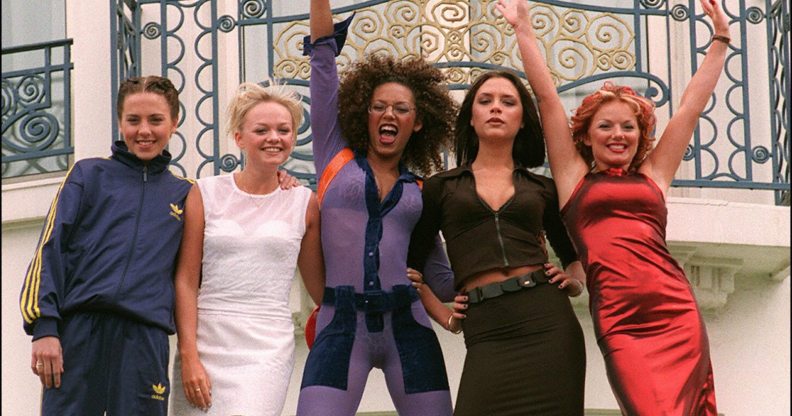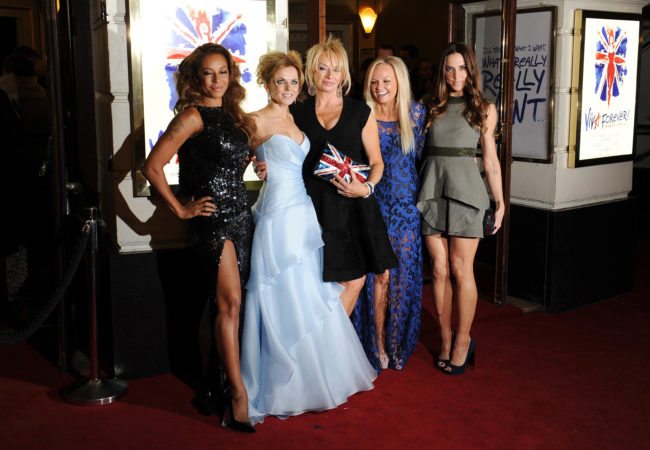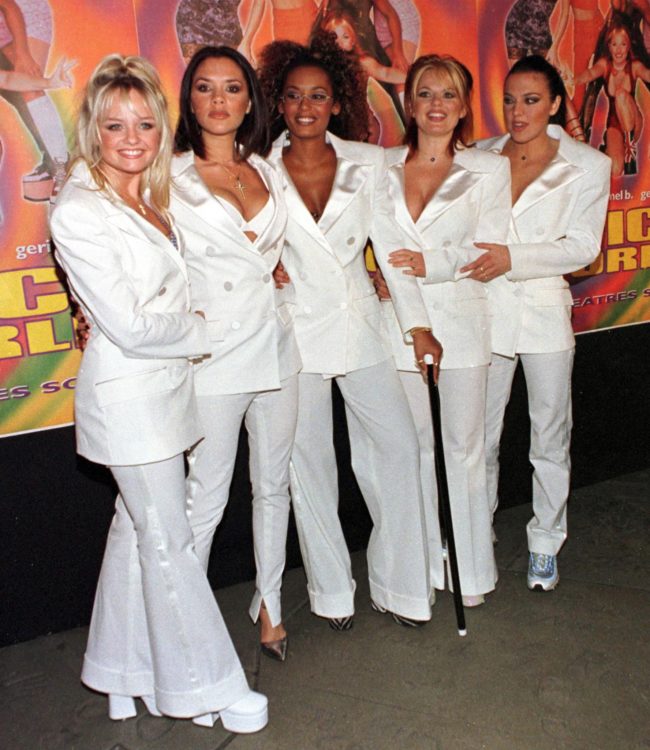Where’s the Girl Power at? Most Spice Girls fans don’t identify as feminists

(Getty)
Back in the Nineties there was mass hysteria from grans, teens and all ages inbetween about Girl Power.
The Spice Girls, with their brash, give-a-f**k attitudes and their loud and proud personalities were something new for female representation.
They reconciled the ladette culture of the day made popular by the tomboyish antics of Denise Van Outen and Zoe Ball with a more earnest sense of femininity.
The five diverse girls – one with a thick northern accent, and one a posh southerner whose dad had a Rolls Royce – seemed to be tied by their gender to make serious music, and send a political message too.
The Spice Girls were fun, but they had an agenda. Was this a new heroic breed of feminism fit for the Nineties?
On the one hand, it would appear not. Stats released by You Gov have revealed the majority of Spice Girls fans don’t identify as feminist.

(Getty)
YouGov interviewed 31,000 Spice Girls fans and after matching their data with extensive profiles of the entrants, the results made for grim reading.
Only 31 percent of Scary Spice’s fans identified as feminists, whereas at the lowest end, 15 percent of Emma Bunton – aka Baby Spice’s – fans are feminists.
Only 20 percent of Mel C’s fans identified as feminists, the same figure as Ginger Spice’s fanbase and 19 percent of Posh Spice’s fans classed themselves as feminists in the new research.
There’s a number of possible explanations for this lacklustre show of support, the main being that feminism as a term is still largely misunderstood.

(Getty)
It is likely that these minority groups who don’t identify as feminists may well identify as supporters of ‘Girl Power’ instead, the more playful and ‘tomboyish’ brand of feminism the Spice Girls invented.
In her book Naked Exhibitionism: gender and public performance, Professor Angela Smith of Sunderland University described this Nineties iteration as “like feminism, but you don’t have to burn your bra.”
So Spice Girls fans may have been gunning for all the things feminists were – equal rights, equal pay, equal opportunities – just with a new and lighter title.
However, Girl Power, rather than feminism, was a complicated phenomenon because of its tendency to glamorise girls copying the actions of men.
“The ladette is presented as occupying space outside the traditional feminine domestic sphere, and crucially, as taking space once regarded the principal or sole preserve of men,” Professor Smith writes.
Not *technically* feminist, then.

(Getty)
It’s easy to understand why women may dislike the term feminism, because of how much it is miscommunicated and misrepresented with outdated forms of feminism like bra-burning and political activism that may not align with the bubble gum pop of the Spice Girls.
In an essay titled The Evolution of Feminism, the Harvard Political Review sums up this misconception by saying: “People see the feminist movement as controversial.
“The movement has unfortunately at points been exploited as the female agenda to take over the world.”
So rather than blame Spice Girls fans there still seems to be a disconnect between feminism and some mainstream audiences.
The Spice Girls broke the mould with their garish message of Girl Power, but in an age of Time’s Up and Me Too, can a reunion align the fierce five with a brand of feminism that their fans aren’t afraid to admit to being a part of?

